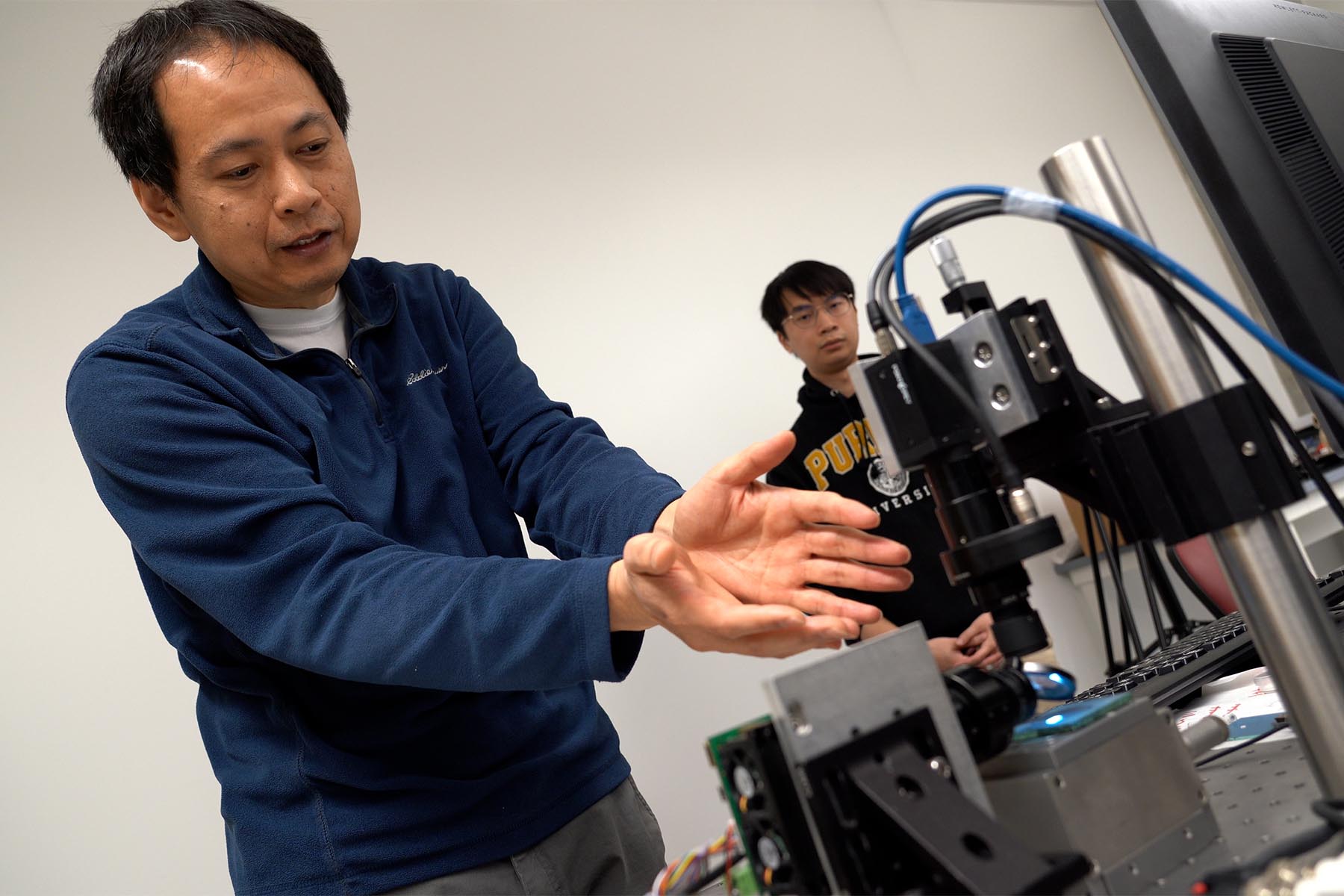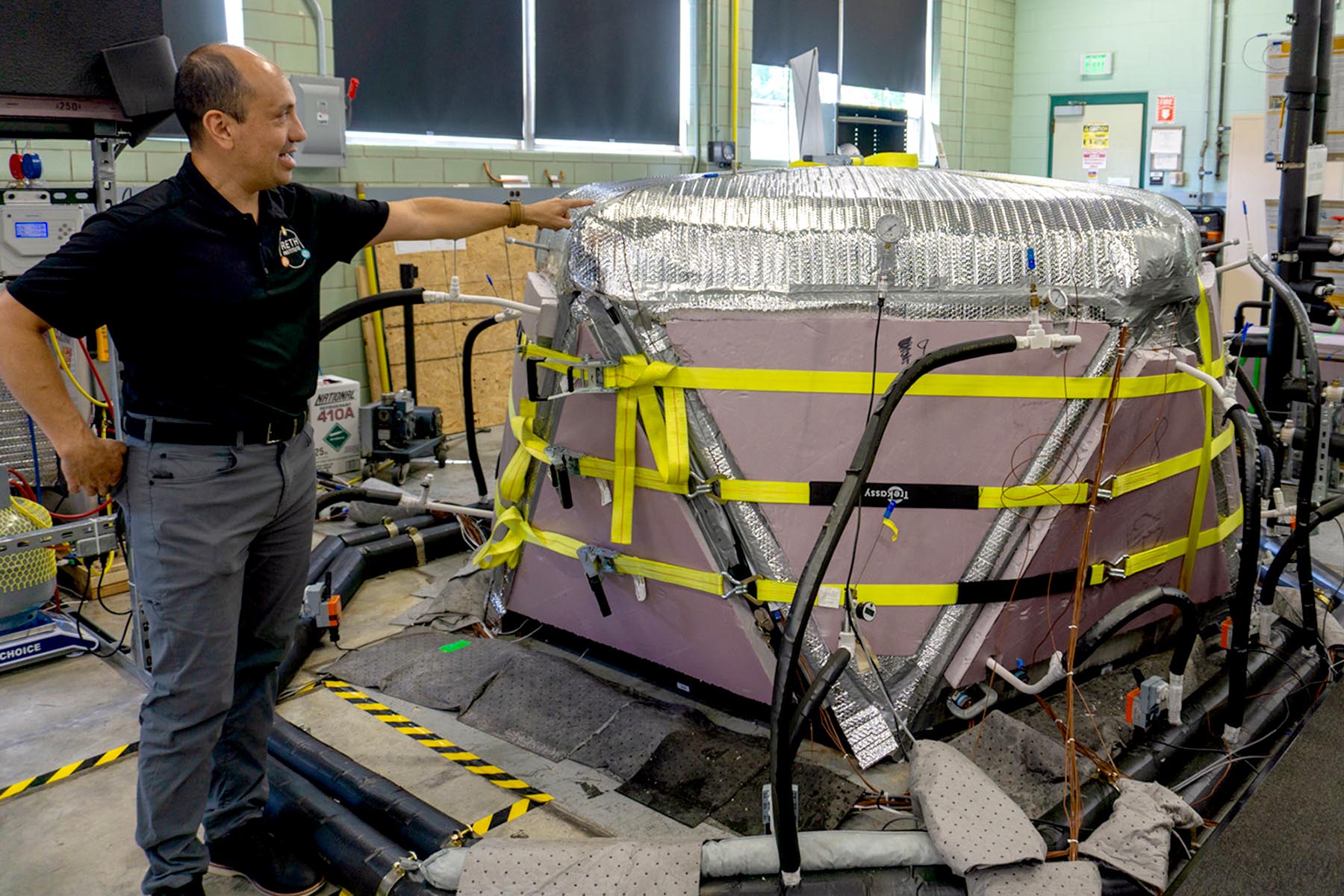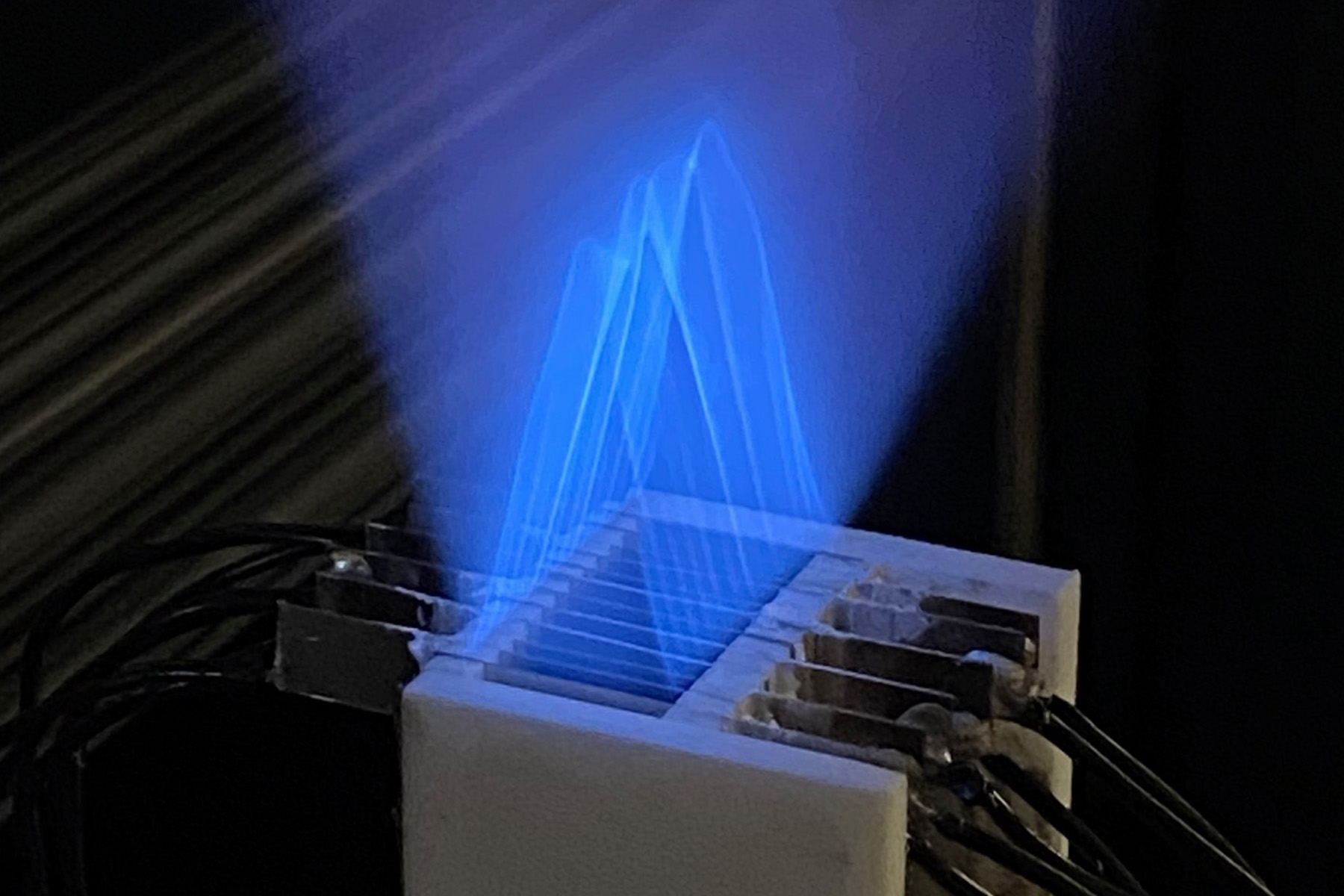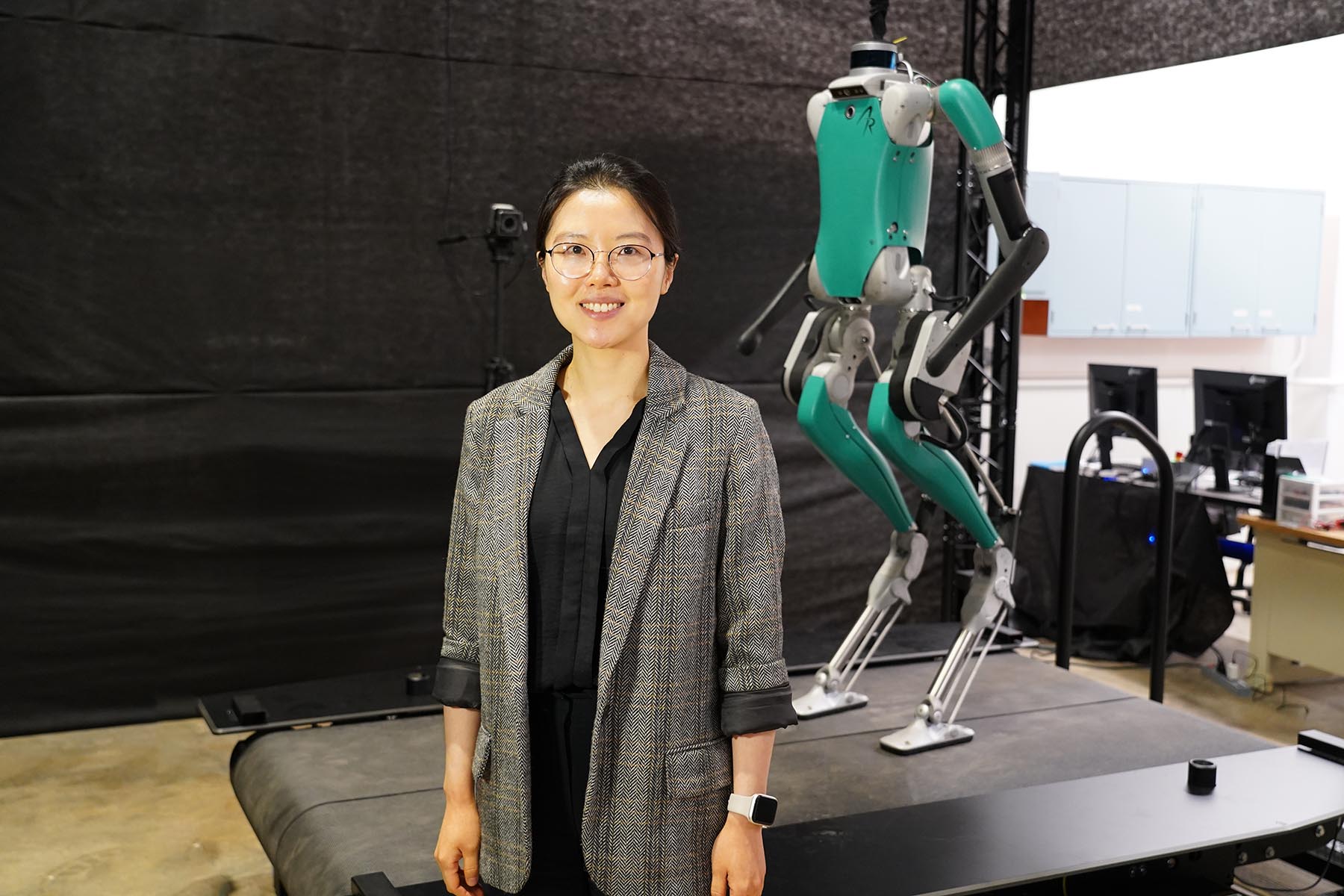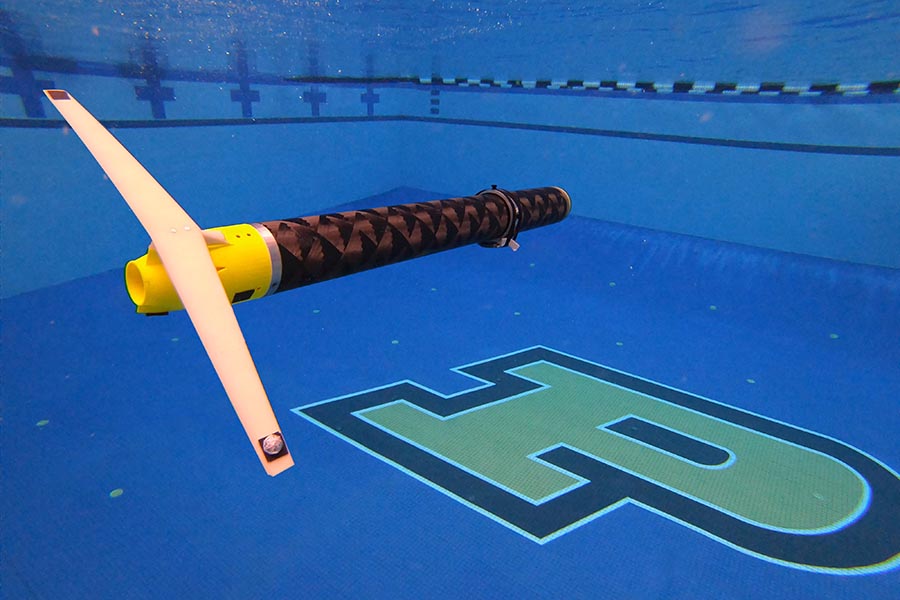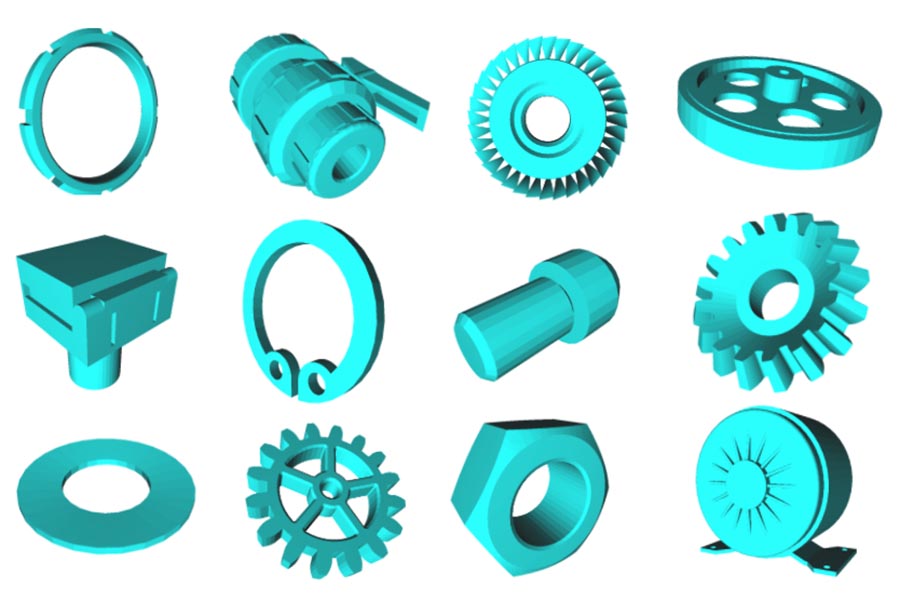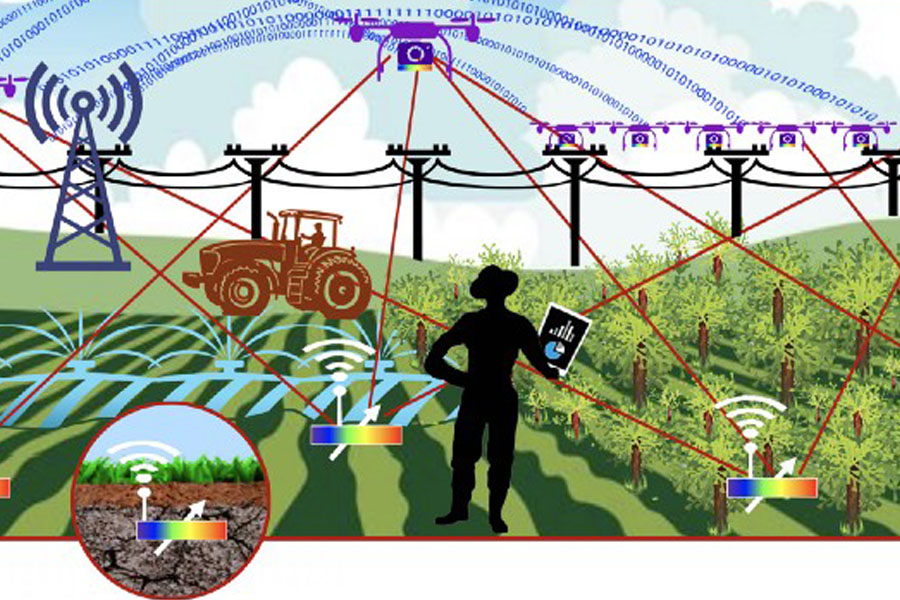Systems, Measurements & Controls
Systems is where everything comes together. Purdue researchers model processes in everything from manufacturing and aerospace, to energy and human-machine interaction. They pioneer new ways to gather diagnostic data on engines, computer networks, buildings, and many other complex systems.
Purdue also has a long history in automatic control , studying both theory and application. Expertise in control and feedback leads to better mechatronics, robotics, vehicles, biomedical tools, and more.
Faculty in Systems, Measurements & Controls
Light scattering
Discrete dipole approximation (DDA)
Biomedical optics
Instrument development for food safety
Optical characterization of soot
Modeling of nonlinear systems
Structural dynamics and localization
Flow-induced vibrations
Impacting systems
Bifurcations and chaos
Uncertainty propagation
Inverse problems
Propagation of information across scales
Optimal learning
Materials by design
Growing robots
Soft robotics
Bioinspired systems
Wearable robots
Haptics
Soft matter
Multi-scale robotic manipulation and assembly
Mobile micro/nano robotics
Micro/nano aerial vehicles
Micro-Bio robotics
Mechatronics
MEMS/NEMS
Automation for the life sciences
Dynamic systems and control
Mechatronics
Digital and functional printing and fabrication
Motion and vibration control and perception
Embedded systems and real-time control
Principles of aerial and aquatic locomotion in animals
Experimental fluid mechanics
Dynamics
Control
Bio-inspired robotics
Biologically inspired micro aerial vehicles and underwater robots
Bio-sensing and sensor fusion algorithms
Structural Dynamics and Control
Cyber-physical Systems
Machine Vision
Real-time Hybrid Simulation
Damage Detection and Structural Condition Monitoring
Cyberinfrastructure Development
Laser absorption spectroscopy diagnostics for gas temperature, pressure, velocity, and chemical species
Laser-induced fluorescence and photophysics
Non-equilibrium gases and reaction kinetics
Hypersonic flows, shock waves, and detonation waves
Combustion and propulsion
Legged locomotion
Humanoid and quadrupedal robots
Wearable robotics
Hybrid dynamical systems
Control
State estimation
Dynamics
Physics-based and data-driven modeling of dynamical systems
Control theory, analysis, and design
Control co-design
Applications: human-machine teaming, multi-phase thermal-fluid systems, manufacturing processes, vehicle electrification
Advanced multi-scale manufacturing
Ultrafast laser machining and processing
Fiber optic sensors and environmental monitoring
Spray-based nanoparticle coating and additive manufacturing
Machining of carbon fiber reinforced polymer (CFRP) composites
Building electrification, flexibility, and efficiency
Integrating flexible loads, energy storage, and distributed solar into power grids
Optimization and control under uncertainty
Energy policy
Acoustic tweezers
Acoustofluidics
Acoustic metamaterials
Ultrasound control
Underwater communication
Ultrasound imaging
Multiphysics wave propagation theory
Noise control and energy harvesting
Laser diagnostics
Diode-laser-based sensors
Gas turbine and internal engine combustion
Materials processing and synthesis
Combustion science
Fluid mechanics and heat transfer
Robotics
Marine Robotics
Unmanned Systems
Energy Autonomy
Systems Design
Coordination and Controls
Dissimilar material 3D printing
Additive manufacturing of energetic materials
Additive manufacturing of materials for high temperature applications
Quality control in additive manufacturing
Mechanobiology and biomechanics
Diagnostics
Bacterial biophysics
Micro/nano fluidics and transport
Biotechnology development
Physicochemical hydrodynamics
Measurement tools
Biomedical devices and wearables
MEMS, nanotechnology
BioMEMS
Biosensors
Protein detection
Aptamers (Nucleic-acid-based receptor molecules)
Model-based system and control design of commercial vehicle power trains
Connected and automated commercial vehicles
Internal combustion engine & after-treatment system design and controls
Flexible valve actuation in diesel and natural gas engines
Electrochemistry, mechanics, interfacial chemistry, and kinetics in energy storage systems
Advanced synthesis, processing, and characterization techniques for energy storage materials
Atomistic-scale modeling of chemical and mechanical properties in energy storage materials
Multi-scale and multi-physics based modeling of Li-ion batteries and fuel cells
Laser additive manufacturing
Ultrafast laser matter interaction
Laser welding
Laser assisted machining
Laser shock peening
Multi-physics, multi-scale modeling
Micro-nano manufacturing
Scanning Probe Microscopy
Metrology
Optomechanics
Mass spectrometry
Contact mechanics
Vehicle Chassis Control Systems
Vehicle Dynamics
Autonomous Vehicles
Human Driver Dynamics
Laser-matter interactions
Laser-induced plasma and laser-plasma interaction
Laser applications in manufacturing, materials processing, and other areas
Adaptive and robust control
Nonlinear control
Precision control of mechanical systems
Vehicle control
Robotics
Multiscale superfast 3D optical sensing
Biophotonic imaging
Optical metrology
Machine/computer vision
3D video telepresence
3D video processing
Virtual reality
Human computer interaction
I want to research in
I want to have an impact in...

